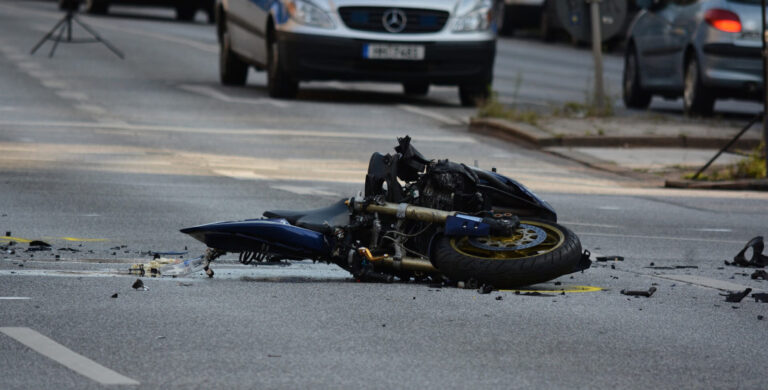Motorcycle accidents can be devastating. A split second of inattention from another driver can leave you with life-changing injuries, overwhelming medical bills, and a long road to recovery. Unlike passengers in cars, motorcyclists have little protection in a crash, making even a minor collision dangerous. The physical and financial toll can feel overwhelming, but you don’t have to face it alone. If someone else’s carelessness caused your accident, you deserve compensation. At the Law Offices of Dianne Sawaya, we will fight for your rights and help you get the recovery you need.
What Are Common Causes of Motorcycle Accidents?
Motorcycle accidents often happen because other drivers fail to see or respect motorcyclists on the road. Even when riders follow traffic laws, they remain vulnerable to careless and reckless behavior from others. Some of the most common causes of motorcycle crashes include:
- Distracted driving – Drivers who are texting, talking on the phone, or adjusting their GPS may not notice a motorcyclist nearby.
- Failure to yield – Many crashes occur when a driver turns left in front of a motorcycle, misjudging its speed or failing to see it.
- Speeding – Excessive speed reduces a driver’s reaction time and increases the severity of collisions.
- Impaired driving – Drivers under the influence of alcohol or drugs pose a significant risk to motorcyclists.
When someone else’s negligence causes a crash, we can help you hold them accountable.
What Are Colorado’s Motorcycle Laws and Regulations?
Motorcyclists in Colorado must follow specific laws designed to promote safety and reduce accidents.
- Helmet laws – Riders under 18 must wear a DOT-approved helmet. Adults are not required to wear one but are encouraged to do so.
- Eye protection – All riders, regardless of age, must wear goggles, glasses, or a helmet with a face shield.
- Lane splitting – Riding between lanes of traffic is illegal in Colorado.
- Passenger rules – Motorcycles must have a designated passenger seat and footrests when carrying another rider.
Following these laws can strengthen your case if another driver causes an accident.
What Are Common Motorcycle Accident Injuries?
Motorcyclists have little protection in a crash, making serious injuries more likely. Even with a helmet and protective gear, riders often suffer painful and long-lasting harm. Some of the most common motorcycle accident injuries include:
- Broken bones – Arms, legs, ribs, and collarbones frequently fracture upon impact with the road or another vehicle.
- Traumatic brain injuries (TBI) – A head injury, even with a helmet, can lead to memory loss, cognitive issues, and long-term disability.
- Spinal cord injuries – Damage to the spine can cause paralysis, chronic pain, or limited mobility.
- Road rash – Sliding across pavement can tear through clothing and skin, leading to infections and permanent scarring.
- Internal injuries – Blunt force trauma can cause organ damage and internal bleeding, sometimes without immediate symptoms.
What Compensation Can You Recover After a Motorcycle Crash?
A motorcycle accident can leave you with overwhelming medical expenses, lost income, and lasting physical and emotional pain. If another driver was responsible, you may be entitled to compensation for hospital bills, surgeries, rehabilitation, and ongoing care. Lost wages and reduced earning capacity can also be factored into your claim.
Beyond financial losses, you can seek damages for pain and suffering, emotional distress, and loss of enjoyment of life. If the crash resulted in a fatality, surviving family members may pursue wrongful death compensation. We will fight to ensure you receive the full recovery you deserve.
How Can We Help with Your Motorcycle Accident Case?
After a motorcycle crash, insurance companies often try to shift blame or offer settlements that don’t cover your full losses. We won’t let them take advantage of you. Our team will conduct a thorough investigation, gathering evidence, reviewing police reports, and speaking with witnesses to build a strong case. We work with accident reconstructionists and medical professionals to prove fault and document the extent of your injuries.
Insurance adjusters may try to pressure you into accepting a low offer, but we push back, demanding full compensation for your losses. If the insurance company refuses to be fair, we are prepared to take your case to court and fight for the outcome you deserve. At the Law Offices of Dianne Sawaya, our team is committed to standing by your side every step of the way.
What Should You Do After a Motorcycle Accident?
The steps you take after a motorcycle crash can impact your health, safety, and legal rights. Taking the right actions can help protect your claim.
- Seek medical attention – Even if you feel fine, some injuries take time to appear.
- Call the police – A police report provides crucial documentation of the crash.
- Gather evidence – Take photos, collect witness contact information, and keep records of your injuries.
- Avoid speaking with insurance adjusters – They may try to use your words against you.
- Contact us – We will protect your rights and handle the legal process while you focus on recovery.
Contact Our Experienced Denver Motorcycle Accident Attorneys
A motorcycle accident can leave you with serious injuries, financial stress, and uncertainty about the future, but you don’t have to go through it alone. Contact the Law Offices of Dianne Sawaya today for a free consultation to discuss your case.

